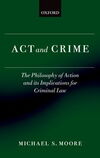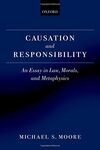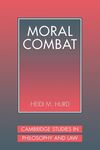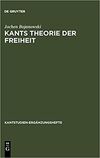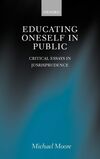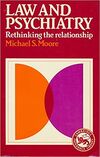This 1993 work provides, for the first time, a unified account of the theory of action presupposed by both British and American criminal law and its underlying morality.
- This 1998 book by a leading Anglo-American legal philosopher provides a thorough examination of the theory of criminal responsibility. Moore is among the first to apply a retributivist theory of punishment systematically to criminal law theory.
- This 2009 book sets out the place of causation in criminal and tort law and outlines the metaphysics presupposed by legal doctrines. It is the first comprehensive attempt since Hart and Honore to clarify the philosophical background to the legal and moral debates prompted by such questions.
- This 2008 book explores the thesis that legal roles force people to engage in moral combat, an idea implicit in the assumption that citizens may be morally required to disobey unjust laws, while judges may be morally required to punish citizens for civil disobedience.
- This 2007 book is a comprehensive collection of sixteen pivotal papers by Wilfrid Sellars, a prominent figure in twentieth-century analytic philosophy. Gathering his often scattered and elusive works, it aims to provide a definitive anthology of Sellars' significant contributions.
- This 2006 book argues that in current debates about freedom of will, Kant's theory of freedom has been placed on the record of bad metaphysics.
- This 2000 book is a sophisticated, detailed, and original examination of the main ideas that have dominated Anglo-American legal philosophy since the Second World War.
- In this 1984 book, Michael Moore describes the legal view of persons as rational and autonomous and defends that view from three challenges suggested by psychiatry: that badness is illness, that the unconscious rules our mental life, and that persons are not unified selves.
